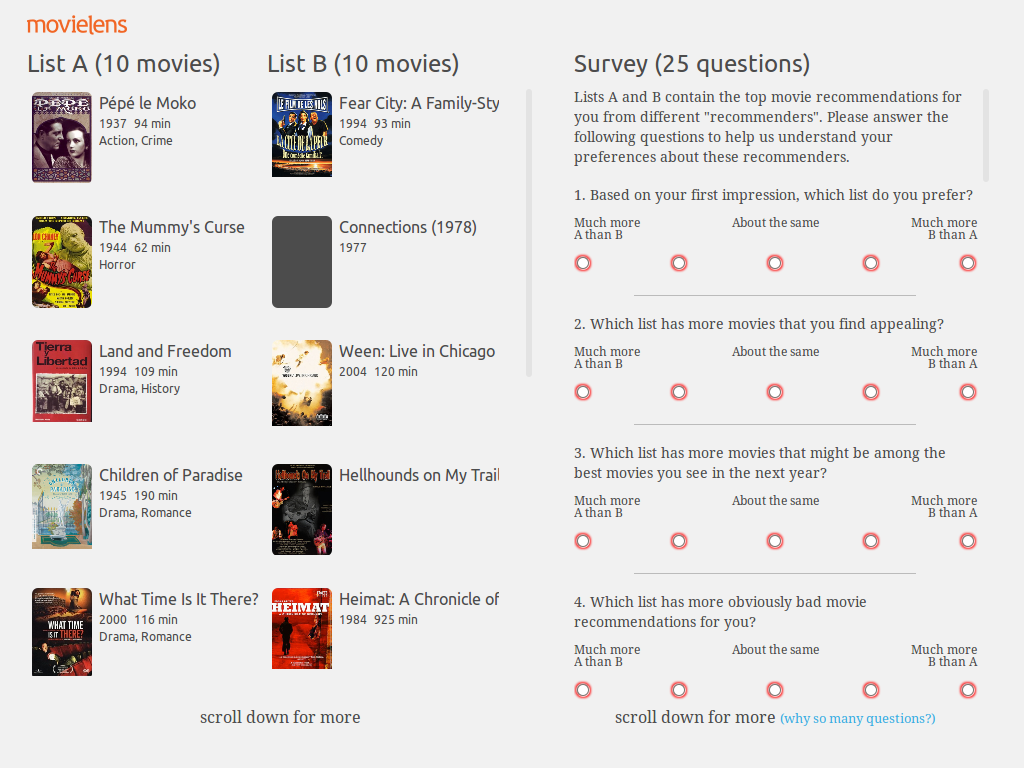User Perception of Differences in Recommender Algorithms
, , , and . 2014. User Perception of Differences in Recommender Algorithms. In Proceedings of the 8th ACM Conference on Recommender Systems (RecSys '14), Oct 6, 2014. ACM, pp. 161–168. DOI 10.1145/2645710.2645737. Acceptance rate: 23%. Cited 320 times. Cited 194 times.

Abstract
Recent developments in user evaluation of recommender systems have brought forth powerful new tools for understanding what makes recommendations effective and useful. We apply these methods to understand how users evaluate recommendation lists for the purpose of selecting an algorithm for finding movies. This paper reports on an experiment in which we asked users to compare lists produced by three common collaborative filtering algorithms on the dimensions of novelty, diversity, accuracy, satisfaction, and degree of personalization, and to select a recommender that they would like to use in the future. We find that satisfaction is negatively dependent on novelty and positively dependent on diversity in this setting, and that satisfaction predicts the user’s final selection. We also compare users’ subjective perceptions of recommendation properties with objective measures of those same characteristics. To our knowledge, this is the first study that applies modern survey design and analysis techniques to a within-subjects, direct comparison study of recommender algorithms.
Resources
- Blog post summarizing results
- Version of record in the ACM Digital Library (free PDF via ACM Author-izer)
- Full text in Texas State University Digital Collections
- PDF full text (author version)
- Slides from the talk; video of the talk is attached to the version of record
- Talk video on YouTube
- This work is published in expanded form in Chapter 7 of my thesis